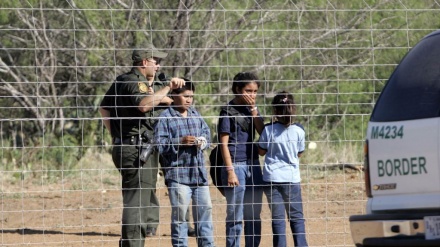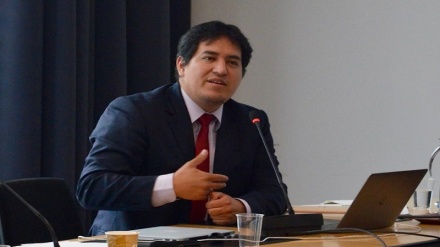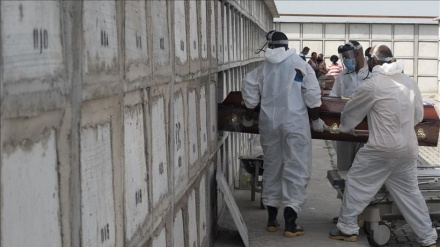-

Haiti assassination raises red flags among observers fluent in history of US intervention
Jul 14, 2021 14:29In the wake of assassination of Jovenel Moïse, the unpopular, corrupt, and increasingly authoritarian U.S.-backed Haitian president, observers fluent in the history of foreign interference in the hemisphere's first truly free republic sounded the alarm over the same sort of calls for intervention in the name of "stability" that preceded so many previous American invasions of Haiti.
-

Biden failed to reconcile border policy with science: Hundreds of thousands cross unvaccinated
Jun 23, 2021 18:51Texas Gov. Greg Abbott claims that the "open-border policies" of the Biden administration have caused a surge in illegal border crossings. The numbers support Abbott. Dealing with migrants from countries with low vaccination rates has been very hazardous for the border patrol.
-

Biden strikes international deal in bid to stop migrants reaching US border
Apr 15, 2021 18:17The Biden administration has struck an agreement with Mexico, Guatemala and Honduras to temporarily increase border security in an effort to stop migrants from reaching the US border. The agreement comes as the US saw a record number of unaccompanied children attempting to cross the border in March, and the largest number of Border Patrol encounters overall with migrants on the southern border – just under 170,000 – since March 2001.
-

'A crisis for climate stability': Data shows rainforest destruction accelerated in 2020
Apr 08, 2021 08:30A new study finds destruction of pristine rainforest increased by 12 percent in 2020, despite global economic slowdown. Across the tropics, the study registered the destruction in 2020 of 4.2 million hectares (10.4 million acres) of primary forest – 12 percent higher than the year before.
-

New study finds as many corals growing in Pacific as trees in Amazon
Mar 04, 2021 08:54Researchers say the estimate of the number of corals, published in the journal Nature Ecology and Evolution, suggests there are as many corals in the Pacific as there are trees in the Amazon.
-

With likely victory of Andrés Arauz, Ecuador will join Latin America’s anti-imperialist surge
Jan 29, 2021 21:14Ecuador is just weeks away from becoming the latest Latin American nation to move away from the IMF and United States and elect a strongly progressive, anti-imperialist government.
-

As spending climbs and revenue falls, coronavirus forces a global reckoning
Jan 14, 2021 09:43Around the globe, the coronavirus pandemic is racking up a mind-blowing bill: Trillions of dollars in lost tax revenue, ramped-up spending and new borrowing set to burden the next generation with record levels of debt. In the direst cases – low- and middle-income countries, mostly in Africa and Latin America, that are already saddled with backbreaking debt – covering the rising costs is transforming into a high-stakes test of national solvency.
-

Latin America’s pandemic of mounting troubles
Jan 03, 2021 10:34Many regions performed badly when confronted with COVID-19, but Latin America fared worse than most, in terms of both lives and livelihoods lost. As of November 2020, nine of the 20 countries with the highest number of COVID-19 deaths per capita were in Latin America.
-

China working to expand ties with Latin America
Nov 18, 2020 17:41Over the past two decades, China has emerged as one of the most important markets for Latin American countries. China has developed three distinct pillars for its policy on Latin America: purchases of Latin American goods, Chinese investment in Latin America, and Chinese political solidarity with key Latin American governments.
-

Why do we develop lifelong immunity to some diseases, but not others?
Aug 16, 2020 10:01Some diseases, like the measles, infect us once and usually grant us immunity for life. For others, like the flu, we have to get vaccinated year after year. So why do we develop lifelong immunity to some diseases but not others? And where does the novel coronavirus fit into all this? Whether or not we develop immunity to a disease often depends on our antibodies, which are proteins we produce in response to infection.